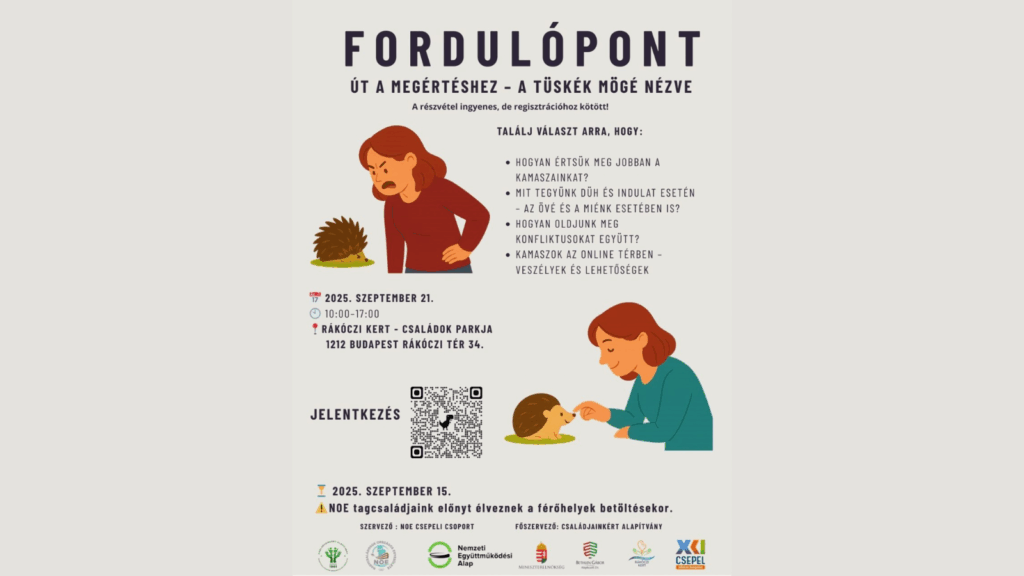Media statement.
Brussels, 8th September 2022.
COFACE Families Europe welcomes yesterday’s adoption by the European Commission of the European Care Strategy. With this decision, set in the framework of the Action Plan on the European Pillar of Social Rights, the European Union reaffirms its willingness to advance towards the inclusive and community-based care system of tomorrow. This integrated and fair care infrastructure should cater to the care and support needs of all from birth to old age, while fostering gender equality and the social recognition of family carers. We call on Member States to swiftly adopt the recommendations and to implement reforms to transition to a sustainable care model for all families and their members.
The European Care Strategy, launched on 7th September 2022, contains a Communication and two Proposals for Council Recommendations aiming to create a sustainable and fair care system. The vision laid out in the documents caters for the needs of persons needing care, but also to the families and professionals providing it while giving indications on how to improve the well-being of families and family carers. The documents intend to SHIFT the European care debate toward a sustainable model that fosters gender equality, paying attention to users’ rights, independent living, and inclusion in the community.
With the two Proposals for Council Recommendations, covering the topic of care from birth to old age, the European Commission is providing the building blocks of a long-awaited reform of Early Childhood Education and Care (ECEC) and Long-Term Care (LTC) systems to transition to community-based solutions respecting individual choices and supporting families. The two proposed Recommendations are framed by the Communication which sets the scene for a Europe that cares. COFACE believes the European Care Strategy offers an opportunity to create an EU inclusive of all families and their members that COFACE has been defending for more than six decades.
Anne-Mie Drieskens, COFACE Families Europe President said: “The Strategy proves that the European Commission recognises that care is a responsibility of the whole society and not only of families. COFACE welcomes this Strategy that paves the way and encourages the development of national policies investing in high quality childcare and support to family carers. ”
Revised targets for a more efficient and inclusive ECEC for children and their parents.
The proposed ECEC Recommendation calls for reforms to ensure all children have a legal entitlement to access quality services adapted to their needs while supporting parents in their parenting journey and career choices. This two-generation approach, bringing together the needs of parents with the rights of children is crucial for family balance and well-being.
COFACE particularly welcomes the European Commission push for the provision of adequate child/staff ratios as one of the measures to ensure quality in ECEC, continuous professional training of staff, and the inclusion of intensity/time requirements in the indicators. This last point is particularly important for children with disabilities who sometimes can only access ECEC services for a few hours a week -when they can access it-, the suggested targets are therefore appreciated and their extension to all children, regardless of their family background, origin, or disability status, should be specified in the upcoming Council Recommendation. Finally, COFACE highly appreciates the attention paid to parents with disabilities in the ECEC Recommendation, as they and their families are too often invisible.
We call on the Council to swiftly adopt the Recommendation and to work to integrate the targets in their current work on fighting child and family poverty and social exclusion under the European Child Guarantee by using this recommendation to strengthen actions on access to high-quality, affordable and accessible ECEC services for all children.
Pushing for strong national actions plan covering the full spectrum of Long-Term Care.
The proposed LTC Recommendation presents guidance on how to respond to the complexity of the long-term care equation respecting the needs and rights of both care receivers and providers. It displays a broad vision of what constitutes care, offering therefore a continuum of care to ensure appropriate support. The importance of family/ informal care is stressed as an element of a sustainable care system with recommendations to provide appropriate support to family carers with financial resources, time arrangements – notably building on the new rights in the EU Work Life balance directive – and respite care; as well as facilitating the collaboration with formal care services. COFACE welcomes the recognition of the central role of family carers and the consideration of their reality and needs in the recommendation. We call on EU Members States in their National Action Plans to directly involve family carers and their representative organisations to develop strong and comprehensive measures to ensure that family care is a choice and not a necessity and to support people making that choice in their essential role. They should also include concrete steps for the social recognition and access to social rights for family carers as a way to support life in dignity, gender equality, and the fight against family poverty and social exclusion in Europe.
The gender equality component of LTC is present through the document and is central to the Care Strategy. While the Recommendation includes measures to provide financial resources to informal carers, it clearly states that this should not deter participation in the labour market. Informal carers being for the large majority women, the gender aspect is central to any long-term care policies and will have to come out strongly in the National Action Plans including through actions to challenge the harmful gender stereotypes corroding the formal and informal care sectors.
The proposed Recommendation notes that LTC systems must also cater for the support needs of persons with disabilities while clearly referencing the United Nation Convention on the Rights of Persons with Disabilities (UNCRPD), notably the right to independent living and inclusion in the community (art.19). The development of community-based services with a well-trained workforce is a central part of the realisation of these rights. The National Actions plans therefore must be compliant with the UNCRPD objectives and push forward the transition to independent living.
The European Commission sets out an ambitious governance and monitoring system based on revised indicators, National Action Plans and with the support of newly appointed coordinators in each EU Member State. COFACE welcomes this ambition to share expertise at the European level but calls on the European Institutions to go a step further by formalising the cooperation with key EU stakeholders on the implementation of the LTC recommendation by setting up a High-Level Expert group on LTC bringing at the table civil society organisations, Member States coordinators and all relevant stakeholders.
Chantal Bruno, COFACE Disability Platform co-president said: “We welcome the European Commission’s leadership and now call on the EU Member States to work on strong national action plans for long-term care systems that respect the needs and wishes of the persons cared for and supported but also of the persons providing this care whether they are families or professionals.”
COFACE Families Europe now calls on all governments to swiftly adopt the Recommendations and follow up by developing strong national action plans in collaboration with all relevant stakeholders, covering all key dimensions in the European Care Strategy Recommendations and based on a multi-generational approach with a strong family support stream that acknowledges the interrelated well-being of persons with care and support needs and their families – particularly family carers-, and the professionals working with them.
Family organisations in the COFACE network support this initiative and stand ready to share their knowledge on strengthening overall care and support systems to S.H.I.F.T. to the full inclusion of persons with disabilities and their families as well as other persons in need of assistance. This will require an efficient system with intergovernmental coordination at national and sub-national levels to ensure effective and lasting change.
What is the European Care Strategy?
- A Package of measures to address the deficiencies of the care system.
- A Communication – presenting the overall vision of the social care infrastructures of tomorrow and the actions that will be taken at the EU level to push for upward convergence while respecting competences at EU and national level. It highlights the need to consider care as a continuum that needs to be addressed from a lifecycle approach taking into consideration the rights and wellbeing of all actors: persons in need of care and support, family carers and care professionals.
- A Proposal for a Council Recommendation on Early Childhood Education and Care – presenting a revision of the Barcelona targets, with more focus placed on the quality of services and their accessibility. The 2002 indicators are raised and new quality indicators are included, such as the number of hours a child attends ECEC and staff/child ratios. Clear links are made with the European Child Guarantee, the European Strategy for the Rights of Persons with Disabilities and the EU work-life balance directive.
- A Proposal for a Council Recommendation on Long Term Care - presenting a vision of long-term care that balances the needs of care users with recommendations on carers from family to professional services addressing the continuum of care. It recommends that Member States adopt National Action Plans to reform their care infrastructures to boost the transition to independent living and full inclusion in the community.
- A Package set within a wider European Pillar of Social Rights, the European Care Strategy brings to the fore the topic of care as an essential component of social rights, as it contributes to the advancement of Gender Equality (Principle 2), Work-life balance (Principle 9), Child Care and Support to Children (Principle 11), Inclusion of People with Disabilities (Principle 17) and Long-term Care (Principle 18).
- The Commission will monitor the implementation of the strategy through a mix of tools, explicitly linked to the European Pillar of Social Rights 2030 targets on poverty reduction and employment.
- It puts forward the need to recognise family carers – and to accompany this social recognition with support measures which ensure access to resources, services and appropriate time arrangements allowing the conditions for an informed choice.
- The Member States now have to adopt the two Recommendations in the EPSCO council and they are encouraged by the European Commission to put forward concrete action plans on the LTC reforms that will be monitored through the revised indicators of the EU Semester developed in consultation with the Social Protection Committee.
COFACE resources
- EU Care Strategy: COFACE Families Europe Recommendations
- Mind the gap: the EU Care Strategy must promote gender equality
- COFACE POLICY BRIEF – Early childhood education and care: A tool for child education, reconciliation of work and family life, and a caring and inclusive economy
- European Charter for Family Carers
- S.H.I.F.T. – A guide to shift towards meaningful inclusion of persons with disabilities and their families
- From Words to Actions: Shedding light on the S.H.I.F.T towards meaningful inclusion in Europe
- Key Findings: Study session on gender inequalities in care and pay
- Long-term care: The family dimension
- Towards an economy which cares: COFACE Economic Principles
- Child Compass 2030: Shaping a healthy society, environment and economy fit for children
- Who Cares?: Study on the challenges and needs of family carers in Europe
- COFACE Position Paper: Families on the Edge
Going Further
- Looking beyond COVID-19: Strengthening family support services across the OECD
- Study on exploring the incidence and costs of informal long-term care in the EU European Commission
- Gender equality and long-term care at home, European Institute for Gender Equality
For more information, contact Bettina Guigui, Senior Communication Officer: bguigui@coface-eu.org





